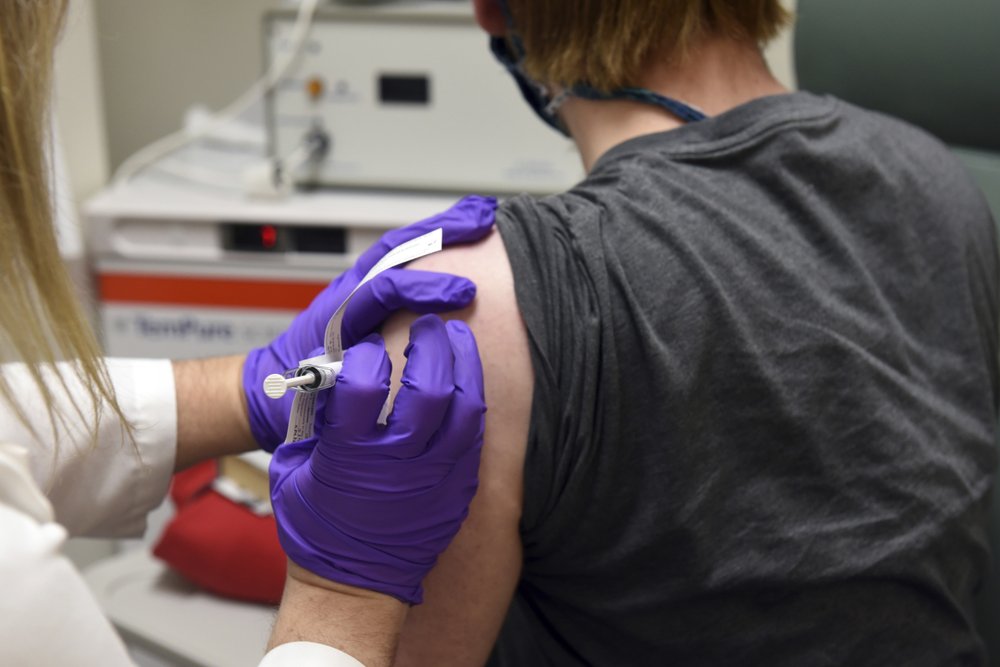Be patient amid good COVID-19 vaccine news, epidemiologist says

VANCOUVER (NEWS 1130) — Another vaccine announcement Monday offers the possibility of a cheaper and easier rollout, but it isn’t going to be a panacea or quick fix to the pandemic, according to an epidemiologist.
The University of Ottawa’s Dr. Raywat Deonandan says it’s still going to take time for there to be enough protection against the virus to ease up on health precautions entirely.
“Even if you get the vaccine, it’s going to take a month until you get the second dose, two to four weeks after that until you are sufficiently immune. It’s a couple of months after your first shot until you are technically immune and that has to be scaled up,” he says, adding there could still be setbacks in trials.
Advertisement
“So it’s going to take time to get to herd immunity, which is like 80 per cent of the population.”
AstraZeneca is the third drug company to claim its vaccine is effective against COVID-19. The vaccine would be cheaper and easier to store compared to the competitors’ candidates because it doesn’t need to be held in extreme sub-zero temperatures.
Deonandan says wearing masks and physically distancing will likely still be Canada’s reality in 2022.
Related Stories
-
COVID-19 vaccine will be ‘beginning of the end’, PM says, adding tough winter still ahead
-
Pfizer to seek COVID-19 vaccine approval after reporting 95% effectiveness
-
Moderna says its COVID-19 vaccine candidate shows high efficacy rate
Advertisement
He adds vaccines haven’t been tested on children under the age of 12 yet.
“Trials will commence next summer, I think, but they won’t be okay for kids until the end of next year at the earliest,” he says. “Children’s immune systems are different and they respond differently so they need to figure out what the dosage and what the side effects are going to be because they’re going to be different.”
While he admits this winter will be long and difficult, positive vaccine news means there’s an end in sight, something that wasn’t there a few months ago.
“This is is not permanent anymore. So just hold still because it’s just for a few more months, and as more people get vaccinated, we lift more and more restrictions — it’s not all restrictions until the end of next year, it’s some restrictions,” Deonandan says.
Meanwhile, Pfizer and Moderna last week reported preliminary results from late-stage trials to show their vaccines provide close to 95 per cent protection against the virus.
